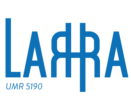GOLEM
GOLEM
Description:
Ontology of fiction and narrative, developed as an extension of CIDOC-CRM and LRMoo, and aligned to DOLCE-Lite-Plus.
Narrative phenomena can be viewed as interconnected systems in which various components influence one another. Understanding the properties of narratives requires analyzing them in relation to each other and within their broader context, rather than in isolation (Pianzola, 2018). Formal ontologies provide a structured and systematic approach to representing the essential elements of storytelling. By capturing relevant concepts, constraints, and interrelationships among narrative elements, ontology ensures a consistent and explicit representation of the narrative domain.
In literary studies, traditional quantitative and probabilistic methods often struggle to account for the semantic richness and intensional qualities of texts (Ciotti, 2016). In contrast, ontology modeling highlights the complexities of narrative structure, making these elements explicit and computable.
The GOLEM project developed an ontology that models narratives and fiction independently of their specific domains. To achieve this, the project seeks to identify a common ground that defines how key elements of narrative structure—such as events, characters, social relationships, and settings—interrelate. By employing a modularization approach, GOLEM will create a comprehensive library of modules that encapsulate these narrative components, including modules for characters, relationships, events, settings, and narrative inference.
The detailed description of each module can be read in the GitHub.
Furthermore, the ontology contributes to comparative studies by providing a structured framework for analyzing narratives across different cultural contexts. It enhances our understanding of cumulative cultural evolution in narratives, allowing for a more nuanced exploration of how narratives evolve and grows cumulatively over time (Pianzola et al., 2020).
References:
Ciotti, F. (2016). Toward a formal ontology for narrative. MATLIT: Materialidades da Literatura, 4(1), 29-44.
Pianzola, F. (2018). Looking at narrative as a complex system: The proteus principle. In Narrating complexity (pp. 101-122).
Pianzola, F., Acerbi, A., & Rebora, S. (2020). Cultural accumulation and improvement in online fan fiction. In CEUR Workshop Proceedings (Vol. 2723). CEUR-WS. org
Description
Identification
Start date: 2024-10-08
Labels
| Label | Language | Last updated |
|---|---|---|
| GOLEM * | en | 2024-10-08 |
* : Standard label for this language
Hierarchy
GOLEM is a master project and has no subproject.
Root namespace
This project manages the golem namespace.
Ongoing namespace: golem ongoingPublished versions
| Namespace | Publication date |
|---|
Namespaces available in the owl:imports API
| Namespace |
|---|
Profiles owned by this project
| Profile | Last updated |
|---|
Profiles used by this project
| Profile | Version | Status | Last updated | API |
|---|
Thesaurus list
There is currently no controlled vocabulary linked to this project.
Members of the project
| Name | Institution | Role |
|---|---|---|
| Luotong Cheng | university of groningen | Administrator |
| Federico Pianzola | University of Groningen | Administrator |



